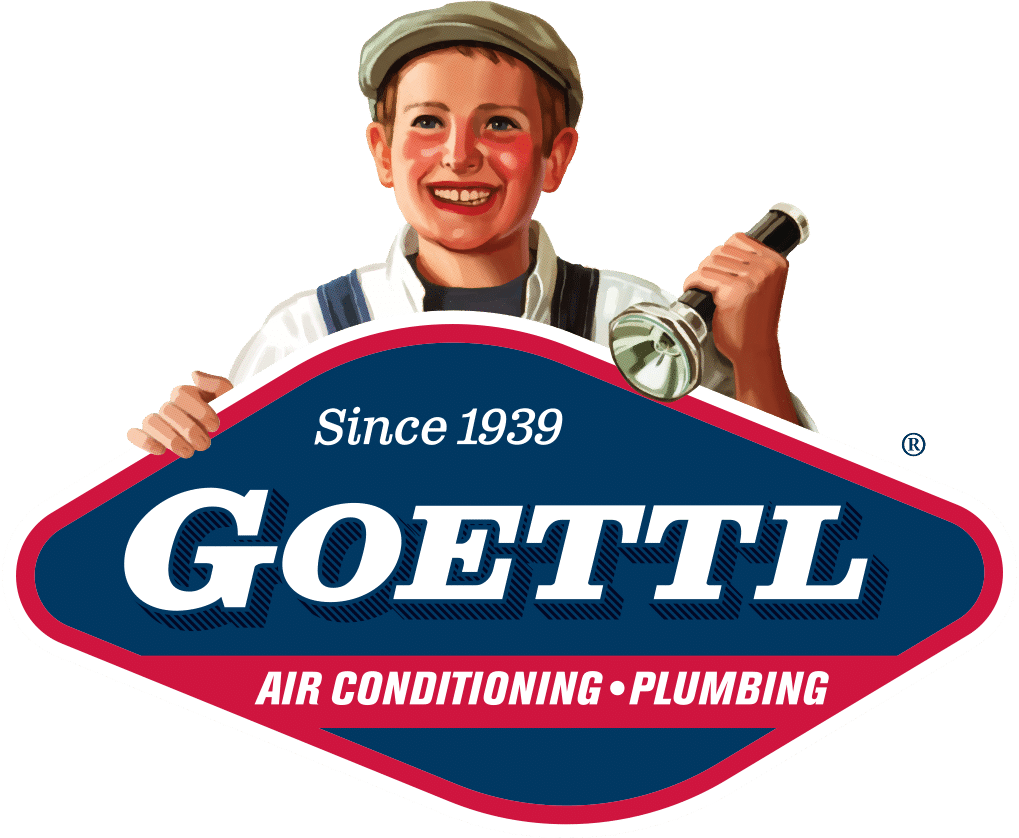
Heat Pump Repairs: Refrigerant Leaks
Discover the versatility of heat pumps in the mild winters of the Southwest—they function as both cooling and heating systems. This dual capability is achieved through a refrigerant cycle and a reversing valve. However, it’s crucial to note that systems using refrigerant, like heat pumps, may be susceptible to leaks. These leaks can harm the system and compromise its ability to maintain home comfort. Learn to identify signs of a refrigerant leak with these tips to ensure your system’s optimal performance.
How the Heat Pump Works
Similar to a standard split central air conditioner, a heat pump evaporates refrigerant in the evaporator coil to extract heat. The heated refrigerant is then transferred outside to the condenser coil, where it is condensed, releasing the absorbed heat outdoors. This cycle repeats until the desired indoor temperature is achieved.
In contrast to a central AC, a heat pump has the ability to reverse the refrigerant flow and switch the function of its coils. This allows the system to extract heat from the outdoor air and use it to warm the indoor air—an efficient process that doesn’t involve generating new heat. However, insufficient refrigerant levels can lead to operational issues.
Watch out for these signs of a refrigerant leak:
-
Short Cycling: If your HVAC system starts up but quickly shuts down, it could be short cycling. This strains the system and can cause lasting damage. Insufficient refrigerant can lead to overheating as the system struggles to meet heating or cooling demands.
-
Hissing Sounds: Strange hissing noises from your heat pump may indicate refrigerant escaping. No, it’s not a snake—it’s the sound of pressurized gas leaking from the system.
-
Increased Costs: Don’t settle for overpriced heating! If your heater is becoming expensive to run, it might be due to a refrigerant leak in the system. Keep an eye out for potential leaks to maintain efficient and cost-effective operation.
transform your comfort with goettl
Experience seamless seasons with our top-notch heat pump repair and installation services. Don’t let heating issues chill your home—trust Goettl to keep you warm. Schedule your service today for reliable warmth and unmatched expertise!
Testimonials
What Our Customers Say About Us
What stood out the most was their attention to detail and genuine care for customer satisfaction. They took the time to assess my system thoroughly, offered honest recommendations, and completed the work efficiently without cutting corners. My home is now noticeably more comfortable, and I feel confident knowing everything was handled by true professionals.
If you’re looking for reliable, top-quality HVAC service, I highly recommend Goettl. They truly live up to their reputation and exceeded my expectations in every way.
Roger came for my rejuvenation appointment. He was very curtious and knowledgeable. I was happy he showed up prompt with great respect to my AC unit and property. I relaly appreciate him and his attention to detail. I would highly recommend him for any of your AC needs.
Jesus Gloria AC service review. He did a great job today and I would highly recommend him for any AC service needs. He was very knowledgeable and courteous. He helped add a surge protector on my outside unit for added protection. I look forward to working with him in the future.
Well, I had some plumbing issues at my residence, and I called "Goettl Plumbing." Great results, too 🤗.
My water wouldn't stay hot, and after contacting Justin at Goettl Plumbing, he sent out Frank, a service technician with over 20 years of plumbing experience. Frank spent a good bit of time studying/ evaluating my plumbing functions, consulted with an on-site Goettl supervisor, and determined my plumbing issues.
After they conferred those issues with Justin, a plan for resolution and payment was determined, and work started the next day.
Greg arrived that morning; accessed the work areas, determined the tools and equipment he needed, and got right to work.
By the end of the day, Greg had installed three (3) Replacement Single Handle Tub/Shower Valves, a Pressure reducing valve, and a Thermal expansion tank with vacuum breaker - - RESULTS: Hot Water 💧
In two days, I witnessed Super Communication, Super Teamwork, and some old-time "1990-1991" Professionalism ... thanks,
"GOETTL Air Conditioning & Plumbing" for A Job Well Done 👏🏼
After note. Cameron came back by a day later to check on readings he wasn't able to get on first appointment. I have high confidence in his work. I'm very likely to work with them again
Brayan and Marcos did an awesome job on the new ac installation. Installed with no issues and has been on ever since. Perfect time with summer coming up. Walked through and job was very clean and organized. Great work ethic. Great guys.
Update - our air conditioner went out today (10/26/23) and JEHAD showed up to repair the issue but the issue was bigger than expected. Tomorrow we will have a brand new system! Goettl is an EPIC firm that treats customers right. Thank you again JEHAD for going above and beyond.
Goettl is the epitome of what excellent customer service is! Our Drain King, DAREAN, addressed all of our questions and concerns and not only unclogged our drain but went above and beyond to show us our drains leading to the street were free and clear of any other issues. Thank you Darean and thank you Goettl for a great experience!
Update: great experience with Edgar Loredo who kept it real with us and was very transparent. I appreciate his honesty and recommendations. Will be requesting him as our technician in the future if we choose to use Goettl
2/15/23
Thank you, Jorge G. Again for being so honest about our unit issues.
Kathy
H. Navarro
Frank Soto, plumber was very thorough in his assessment of the problem. Provided options and was patient in waiting for our decision. We are very pleased with Frank's knowledge plus his warm personality was a plus. Thank you Frank.
H. Navarro
Jeremy Ortega service tech did an excellent job removing, cleaning and reinstalling the flame sensors along with servicing the HVAC blowers. We are set for the next 2 years. Thanks again Jeremy.
H. Navarro
Thank you!
09/19/2024 - Husam Ismail did an outstanding job!!! Very personable and honest, so far with my experience with
Goettl he is the best technician that i have encountered.
02/11/2024 - Josh L. did a fabulous job!!! He was very personable and fast. Great experience, I would recommend Goettl to anyone.
Today is 21 July Sam stopped by and service was excellent 👌. Ralph was excellent, great customer service
Thank you goettl
Explain testing and clarified cost.
I was impressed.
Brayan, Jason, and Christian were the three techs who installed the unit and new ducts. They showed excellent work ethic. They cleaned up all debris, and most importantly, the system works perfectly. Today Ignacio came and inspected the work, and found no problems at all. The entire team has earned 5 stars.
November 6, 2024. The team Brayan, Christian and Jason worked awesome in replacing our whole A/C system and air ducts. They were respectful of our property, answered our questions without hesitation. They all did a fantastic job. We thank ya'll for your services and definitely recommend your business. We appreciate you.
November 7, 2024: Ignacio inspected the newly installed air condition and duct system. He was very knowledgeable, and good expertise. He listened and answered our questions and concerns..he helped us to install our Sensi a/c and heater app..
Fe Alexander
Leticia and Ed Baca
We had an blockage in our sewer line.
Tyler Leija was dispatched the same day, and found the blockage using a camera tool.
He cleared the blockage temporarily.
The actual fix would require digging up and replacing the bad area of pipe.
Paulo "Adrian" Dado and his crew came out the next day with backhoe, dug up the area, and replaced the section of pipe.
The next day, after inspection, Adrian and his crew filled in the hole and then cleaned up the area.
This is a brief description. There was A LOT of work involved.
Very professional work.
Our tech Jorge that came out the day before helped quickly assess the situation and get us set up for a new system and water heater. Jorge was very friendly, would highly recommend!
Frank did an excellent job at explaining every thing in terms that were understandable to both myself and my wife. This greatly assisted in making the right decision to look at all options on either repair or update/purchase for the future and in the long term, saving money.
Will definitely call and use
Goettle again and I will ask if Darrean could help again.
Couldn’t be happier. Came all the options




































































































































































































